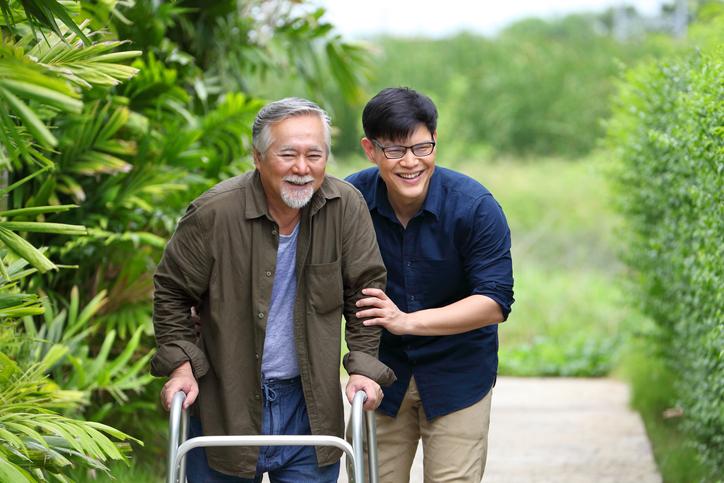Higher education is a battleground for achieving the United Nations’ Sustainable Development Goals. Universities around the world are increasingly promoting community-engagement pedagogies, service learning among them.
Service learning is a high-impact, experiential pedagogy, which links academic learning with community service. Applying your knowledge and skills to service, being immersed in the day-to-day life of underserved communities and reflecting on that experience provide a range of learning outcomes. These include civic gains such as empathy and social responsibility, and personal growth in the form of increased self-awareness and improved problem-solving abilities.
For academics, managing service learning courses entails acrobatic feats. We need to stretch time and resources to satisfy multiple stakeholders, juggle classroom teaching with field project supervision and balance student learning with community benefits. Keeping “service” and “learning” on par in service learning is challenging.
- The dos and don’ts of getting started with service learning
- How service learning can help students create a positive change in the community
- In this together: developing meaningful community engagement
How can we avoid turning communities into mere real-world laboratories where students experience real-life social or environmental issues, or test well-intentioned ideas? Can student projects go beyond raising awareness or achieving piecemeal outcomes, to enabling large-scale actions that make a difference in the day-to-day life of underserved communities?
Some lessons can be learned from the Habitat Green programme, which has been serving remote villages in East Africa since 2013, through projects jointly carried out by Hong Kong students and Rwandan youths. Initiated by our department of computing, Habitat Green started small and gradually attracted the involvement of other academic departments, creating new projects in green engineering, health and livelihood.
The projects attest how different academic disciplines can contribute to sustainable development by leveraging their specialised knowledge and skills. The department of computing, together with the department of electrical and electronic engineering, installs solar panel systems that light up and power off-grid communities (SDG 7 – affordable and clean energy). The School of Nursing contributed to kitchen gardening and health assessments (SDG 3 – good health and well-being). The department of building services and engineering built heat-efficient rocket stoves that limit smoke and use less firewood (SDG 13 – climate action). The School of Fashion and Textiles conducted a textile crafting workshop where students co-designed apparel with local tailors and fashion students for an African-Asian themed village fashion show (SDG 8 – decent work and economic growth).
From Habitat Green’s inception, we have envisioned projects that would have tangible and lasting impacts on service learning stakeholders, and equally target student and community benefits. Likewise, we sought to establish a mutually empowering university-community partnership with a like-minded NGO in Rwanda. Our efforts have crystallised into four strategies:
360-degree student preparation
International service learning programmes are resource-intensive and usually take place in a limited period of 10 to 14 days. We continually devise ways to equip students, not only with knowledge and skills, but also with the right mindset for community immersion and intercultural collaboration. Pre-service preparation combines lectures about discipline-related sustainability issues with experiential activities such as team-building, cultural sensitivity training and virtual destination tours. For example, we provide laboratory simulations with life-size replicas of village houses for students to practise installation skills.
Two-way partnership
The programme thrives on a partnership between the university and a community-based NGO. The decade-long (and still strong) collaboration has built mutual knowledge and trust to work synergistically. African Enterprise Rwanda (AEE) is responsible for liaising with local authorities, enlisting local youth collaborators, and monitoring project deliverables. As the programme has grown, AEE has expanded its services and reach, boosting its reputation with Rwandan authorities and communities.
Context-specific, low-cost solutions
Projects are adapted to the environment and needs of specific rural communities. By combining the expertise of service learning teachers with grassroots resources and techniques, residents can make use of the project’s deliverables, from stand-alone mini solar energy systems to handmade apparel.
Youth agency and capacity building
Habitat Green emphasises peer-to-peer learning and collaborative efforts between university students and local youths. Students transfer knowledge and skills mastered in service learning courses to Rwandan peers who, in turn, introduce local contexts and contribute to developing their own communities.
Energy touches on nearly all aspects of life: education, work, health, safety, leisure and communication. Habitat Green’s chief work has been powering rural households in a region with a low electrification rate.
To date, the programme has brought green energy to over 1,600 households (more than 7,500 children and adults) in East Africa. Families feel safer, children are able to study at night, and home-based businesses such as shops, restaurants and salons can prosper. As villagers formerly reliant on batteries, candles, firewood and petroleum shift to renewable or efficient energy, the environment also benefits.
Habitat Green has also become a platform for staff and students from PolyU and other institutions to train in curriculum-embedded sustainable education and action. Our experience has shown us that university students and youths are not only future protagonists in but also agents of sustainable development.
Grace Ngai is head of the Service-Learning & Leadership Office and associate professor in the department of computing; Rina Camus is senior project fellow at the Service-Learning & Leadership Office, both at The Hong Kong Polytechnic University.
If you would like advice and insight from academics and university staff delivered direct to your inbox each week, sign up for the Campus newsletter.




comment